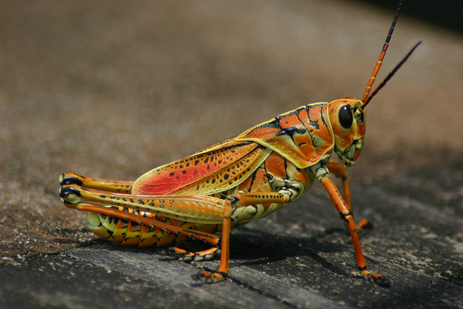 |
|||||||||||
|
|||||||||||
|
Romalea guttata Photo Fiona Sunquist © This giant, slow moving grasshopper’s bright orange, yellow and red colors are a warning that it contains toxins and will make any potential predator sick. If for any reason, you fail to heed the color warning and pick it up, the grasshopper makes a loud hissing noise and secretes an irritating foul-smelling foamy spray.
|
| • Live weather radar • About Florida weather • Map & Key to Regions |

Wildlife of Florida 2011
Fiona Sunquist
Download $19.99


Wildlife of Florida: Lizards
Fiona Sunquist
Download $2.49

gator/crocs | birds | mammals | snakes | turtles | frogs/toads | lizards | sharks
Wildlife | Favorite Activities | My Destinations | about us | resources | site map | home
![]() web site development by Creative Communications
web site development by Creative Communications












